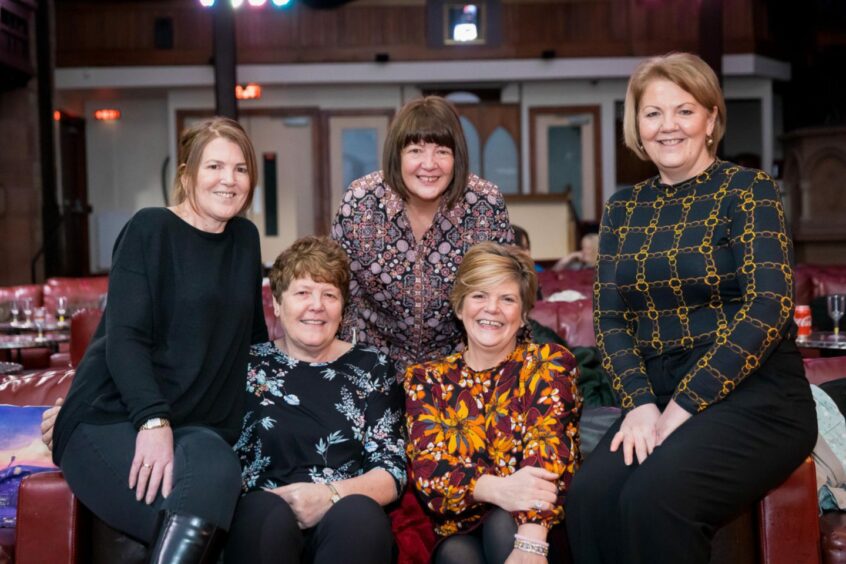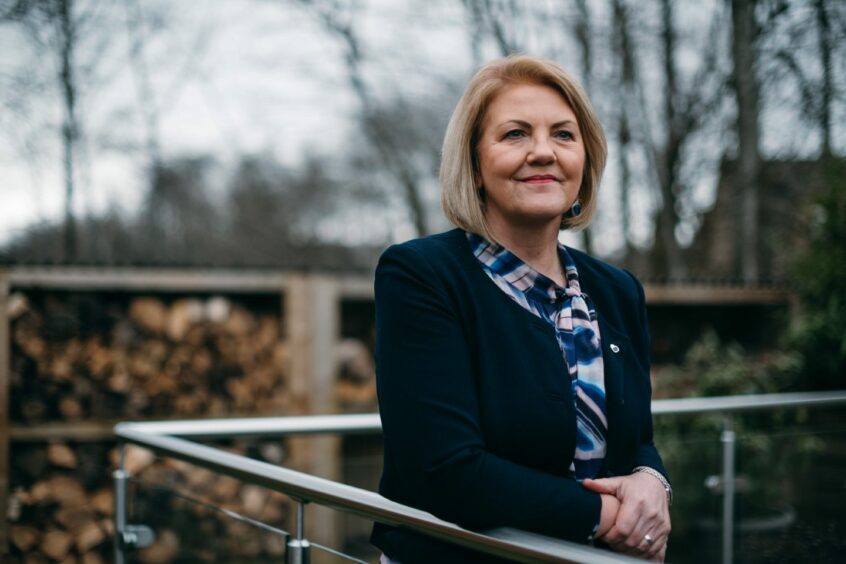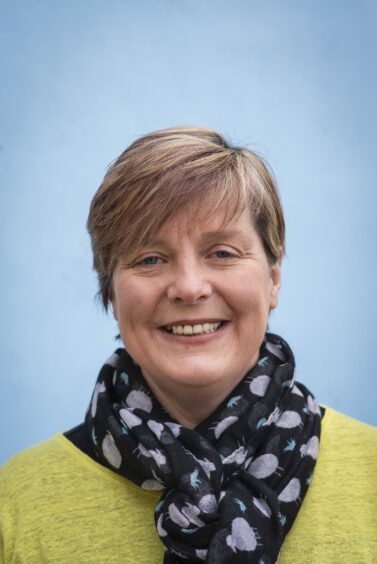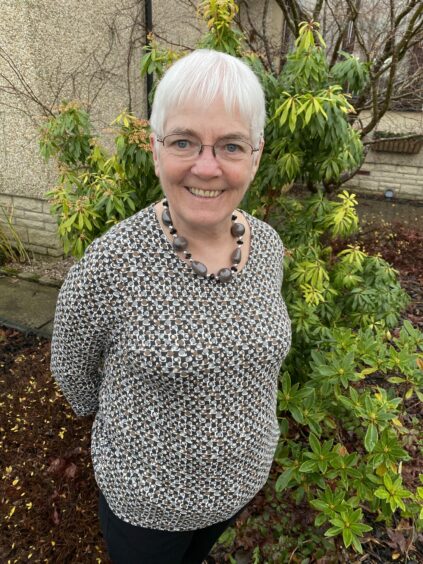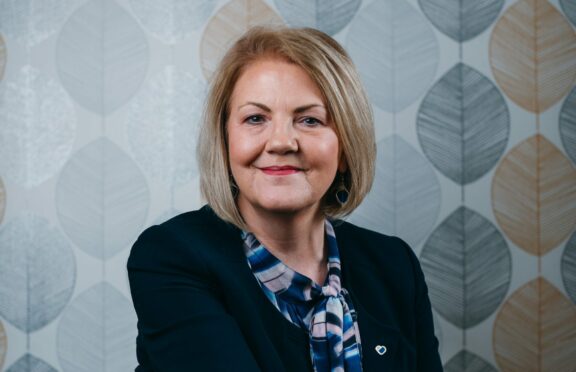
Growing up as one of five sisters, Diane Cooper has always known the benefit of supportive women and now, as the new chief executive of Scottish Women’s Institutes, she’s hoping to deliver the same benefits to women across the country.
“I have four sisters and I always say we’re like our own little institution,” said Cooper. “We were always there for each other when we were young. Now we’re five middle-aged women and we’re still best friends, learning from each other and helping each other through life experiences. That’s what the SWI is all about too.”
Cooper, 58, took on the role in January and is starting to “get to grips” with the huge organisation that first started with a single group aiming to bring women together in Longniddry, East Lothian, 105 years ago and now boasts 30 federations across the country and more than 500 institutes.
“Prior to coming to SWI, I was partnerships manager for Open University in Scotland,” she said. “Before that I worked for membership organisations. When this role came up, I was passionate about it. From my own personal experience I know that having a close network of women, you can overcome anything – and I wanted to help people experience that. I wanted to do something on a national scale and make a difference.”
Sisterhood
International Women’s Day is on Tuesday and Cooper hopes the global celebration can inspire women in Scotland to broaden their connections and find their own sisterhood support.
Of her own sisters Tracy, Marie, Yvonne and Carol, she said: “We have always been, and will always be, there for each other. Life can be challenging. Each one of us has faced life-changing events such as deaths, sadness and illness but we naturally rally round and provide that trust and support to deal with any situation. We are a bunch of resilient sisters.
“Although we are middle-aged women, we still learn together, share knowledge and, most importantly, have fun.
“When we get together and talk about when we were young the laughter can get uncontrollable to the point all the brothers-in-law just shake their heads, walk away and leave us to it! Being surrounded by these girls my whole life, I know just how wonderful it can be.
“And that’s the main reason I was excited about this role. I want to help other women experience having this kind of support and sharing network too.”
Cooper attributes the success of the longstanding WI to its ability to facilitate friendships.
“The bond between women goes back a long way,” she said. “And the WI has stood the test of time because it’s all about friendship, and helping people find that social inclusion.
“Many women join because they want to make friends.
“Some of our members have been friends for years because they met through a group. And in others the groups have formed a circle of friends who look out for each other. If someone is missing at a meeting, the ladies either know why or endeavour to find out. Having that close network of people looking out for you is invaluable.
“As is having fun. The WI women share and learn from each other. Whether women-to-women or across generations, they pass on those traditional skills, so they don’t get lost entirely.
“But one of the key things members talk about is having fun – and that’s something a bunch of women can always do together.”
Moving with the times
Cooper has spent months working her way through drawers and cupboards full of cultural heritage at SWI’s Edinburgh headquarters, which she says is important to protect.
But her strategy, which she will present to the board later this month, involves thinking about ways to move with the times.
“It’s not a case of the old and new, but the current and the future, and we also need to preserve the past,” she said. “We have captured the last 105 years and want to use the current members to help shape the future. We need to update, be modern.
“At the moment, we have a historic constitution from when it used to be armies of women directing other armies of women. It’s quite formal, it’s quite strict. The language used isn’t really fit for purpose now.
“We need to look at deformalising the institute because we can’t have it as a barrier to women now.”
The areas Cooper wants to address include membership growth and making sure events are current and relevant to the world today.
“There has been a natural membership disruption due to Covid but I think we can utilise that to make change,” she said.
“We have been suppressed for two years. People’s confidence has waned and everyone’s mental health has been impacted. It has been difficult for everyone in some way. We need to try to build that confidence up and get that momentum back.
“During the pandemic, some institutes met online, but the majority didn’t meet at all. For a lot of our members, particularly in the rural groups, that could be the one outing they really look forward to and they haven’t had that for a long time. Sadly, we lost some institutes due to closures during the coronavirus outbreak.”
The digital age
Cooper believes digital inclusion could be a way forward, and currently has a team of “digital champions” keen to help members familiarise themselves with computers and get themselves online.
“We have an ageing, declining membership, and the majority of our members are not digitally included,” Cooper said.
“But we equally have some members in their 90s with laptops who can do Zoom.
“If you look at us in 10 years’ time we will be a different organisation. The world is going towards digital, but I don’t think that will ever replace face-to-face meetings. However, that’s not to say you can’t have both.
“It’s quite nice going out for a coffee with somebody and just meeting them face to face. We won’t automatically become machines on screens. It will be a mix but it’s about creating a balance.”
Cooper also hopes to bridge generational gaps between WI members which she believes will hugely benefit the social and learning experience the institution has taken pride in for over a century.
“We’ve got some really thriving institutes, for example, one in Aberdeen. Transitioning women who are moving there for their career, or their partner’s career or to be closer to family and joining the groups because they don’t know anybody and it’s a great way to make friends,” she said.
“They no longer meet in a community hall but in the pub instead and they do things like exciting sports and gin-tasting sessions.
“We have these generational ones evolving but still some very traditional groups where women have incredible skills like intricate embroidery. I would love to see these kinds of skills being passed on before they are lost. And if we could have more intergenerational communication as opposed to being seen as two camps.”
Whatever changes are in the pipeline, Cooper is intent on making sure women know the WI is still what it initially set out to be – a fantastic means of female-to-female support.
“I was a single mum for a long time on my own in London, living in a house boat,” she said. “I sustained a job, had to go to a childminder every morning until I could try to come back to Scotland and have an easier time. There was no support, especially in a big city on my own in my 20s. I had nobody. I am very resilient and, probably because of what I went through, got to where I am today.
“Some people, if they haven’t got that help, could go the other way. It’s really important that people have an opportunity to get support.
“I have been through a tough time but have learned being a woman, you can be strong. I came back to West Lothian where all of my sisters are for that support. Now I hope I can help other women find it.”
Politician: Education is the key to equality
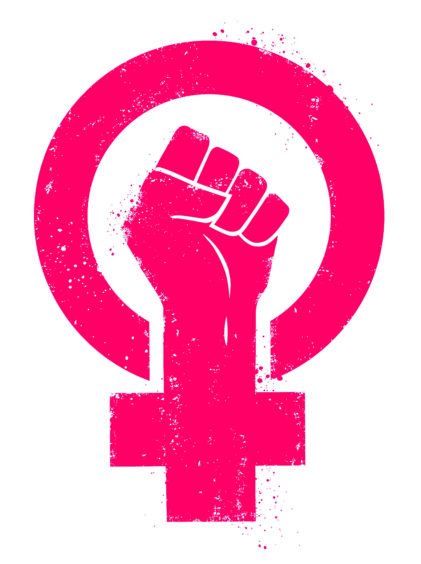
Education is key to securing equality for women, Holyrood heard before International Women’s Day on Tuesday.
In a debate last week, Pam Gosal MSP said it was important to celebrate women’s achievements but also to reflect on the many challenges still facing them to secure equality for future generations.
She highlighted the theme of this year’s International Women’s Day – “Break the Bias” – and said many barriers were still to be broken down in Scotland.
It was an honour to speak and be part of the panel today at the #SWCIWD22 @ScotParl. It was great to meet so many amazing women and girls from different backgrounds. #IWD2022 #womeninpolitics #WomenSupportingWomen pic.twitter.com/We6gHXt8hw
— Pam Gosal MSP (@PamGosalMSP) March 5, 2022
She said: “The education of young women and girls is of paramount importance. Education gives women choices and provides long-term, sustainable economic growth for Scotland. If the future is digital, women need opportunities to be represented in the technological evolution.
“In 2021, young women accounted for 45% of science, technology, engineering and mathematics students in higher education. Uptake of computer science is particularly low, with women accounting for only 16% of computer science students.
“We must continue to encourage and promote Stem subjects to young women. Women’s involvement in Stem-based employment will improve workplace diversity, as men currently make up 82% of the digital technology sector.”
She said MSPs had a responsibility to make change happen and be a voice for women and girls, adding: “We can empower women and girls and be role models who they can relate to. We have the power to open doors for other females.”

Enjoy the convenience of having The Sunday Post delivered as a digital ePaper straight to your smartphone, tablet or computer.
Subscribe for only £5.49 a month and enjoy all the benefits of the printed paper as a digital replica.
Subscribe